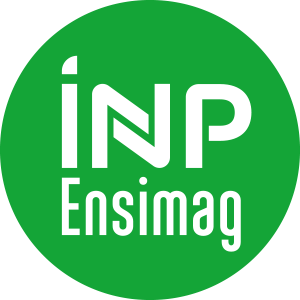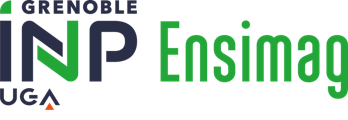Number of hours
- Lectures 16.5
- Projects -
- Tutorials -
- Internship -
- Laboratory works -
- Written tests -
ECTS
ECTS 1.0
Goal(s)
This course is addressed to future computing professionals. It aims at giving them an overview of the historical evolution of computing (in a broad sense, including communication and networking). More precisely, the course addresses:
• the building of the scientific concepts of computer science.
• the technical evolution of hardware and software, the interaction of technical and scientific aspects, and their interplay with related areas (e.g., microelectronics).
• the relationship of computing with other disciplines.
• the impact of computing on the society.
The course also gives an overview of the life and contribution of the men and women who built computer science and engineering.
Gregory MOUNIE
Content(s)
1. Overview of the course: motivations, objectives; the specific aspects of computing (epistemology, relationships to other domains, impact on society). Commented general chronology: the main areas of computing and their mutual interaction.
The precursors: the invention of algorithms, mechanical calculators, Babbage, Boole, tabulators, analog computers.
2. From Turing to von Neumann. Two parallel paths: the first computers, the formalization of algorithms.
3. The stored program computer. The architectural "von Neumann" model; its first implementations (Manchester, Cambridge); an industry is born.
4-5. From mainframes to minis. From transistors to integrated circuits. Internal and external parallelism. The industry : IBM, others. Microprocessors and personal computers.
6. The birth of programming languages: Fortran, Algol, Cobol, Lisp. The languages of the 70's: logical, object-oriented.
7. The "software crisis" and the birth of software engineering. Conceptual and practical advances.
8. Evolution of operating systems: from batch to time-sharing, from personal to mobile.
9. Xerox PARC invents modern computing: the Alto, the Ethernet, the laser printer, the friendly interface.
10. Birth and evolution of the Internet. From the Arpanet to the Internet: evolution of the protocols. A French precursor: Cyclades
11. From data to knowledge (1). History of databases. Models: from hierarchical and network to relational.
12. From data to knowledge (2). History of artificial intelligence, from the Turing test to deep learning.
Specific aspects
A course in the history of science in not conceivable without some notions of epistemology. In this respect, computer science holds a special place, through its dual scientific and technical aspects, and through its approach to problems. On this subject, see the articles of Gilles Dowek (1, 2).
Format of the course
Lectures, with some complements:
- (possibly) lectures by guests on specific subjects.
- reading and commenting historical texts.
- exercises in using languages or systems of historical importance, possibly using simulators.
Students are expected to do individual reading (books, online articles and videos, etc.).
Evaluation : Devoir à la maison (10h)
Scientific poster (personal work). Possibility of making a video on a specific aspect of the history of computing.
Depending on the attendance, this work will be done individually or by small groups, and may include an oral presentation.
The course exists in the following branches:
- Curriculum - Math. Modelling, Image & Simulation - Semester 8
- Curriculum - Information Systems Engineering - Semester 8
- Curriculum - Financial Engineering - Semester 8
- Curriculum - Core curriculum - Semester 8
Course ID : 4MMHI
Course language(s): 
The course is attached to the following structures:
- Team Management science and business
You can find this course among all other courses.
- Épistémologie de l'informatique
1. G. Dowek. Les quatre concepts de l'informatique, Didapro, 2011
2. G. Dowek. Informatics in the classification of sciences, 2nd International Conference on the History and Philosophy of Computing, October 28-31, 2013, Paris, France.
Ces deux textes sont accessibles en ligne (http://www.lsv.ens-cachan.fr/~dowek/) dans la rubrique « Philosophie des sciences ».
- Livres et revue sur l'histoire de l'informatique (des exemplaires des deux livres 3 et 4 seront disponibles en prêt).
3. P. E. Ceruzzi. A History of Modern Computing, 2nd ed., MIT Press, 2003
(Version condensée : Computing: A Concise History, MIT Press, 2012)
4. M. Campbell-Kelly et al. Computer: A History of the Information Machine, Westview Press, 2014
5. Pierre Mounier-Kuhn, "L’Informatique en France de la seconde guerre mondiale au Plan Calcul. L’émergence d’une science", préface de Jean-Jacques Duby (Presses de l’Université Paris-Sorbonne, 2010, 718 p.)
6. Pierre Mounier-Kuhn & Emmanuel Lazard, "Histoire illustrée de l'informatique", préface de Gérard Berry (Paris, EDP Sciences, 2016)
7. IEEE Annals of the History of Computing, IEEE Computer Society
- Exemples de cours sur l'histoire de l'informatique
Purdue (l'un des cours les plus anciens sur l'histoire de l'informatique)
S. Rosen. A Purdue University Course in the History of Computing, Tech. Report, 1991
http://docs.lib.purdue.edu/cstech/872
University of Washington
http://courses.cs.washington.edu/courses/csep590a/06au/
Carnegie-Mellon University
http://www.cs.cmu.edu/~tcortina/15292s17/
La conception de ce cours est détaillée dans : T. J. Cortina, R. McKenna. The design of a history of computing course with a unique perspective, SIGCSE Proceedings of the 37th SIGCSE technical symposium on Computer Science Education, pp. 67-71
-AUTRES sources
- La collection ACONIT et ses salles virtuelles: aconit.org
- The Computer History Museum
http://www.computerhistory.org/
- The Charles Babbage Institute
http://www.cbi.umn.edu/



